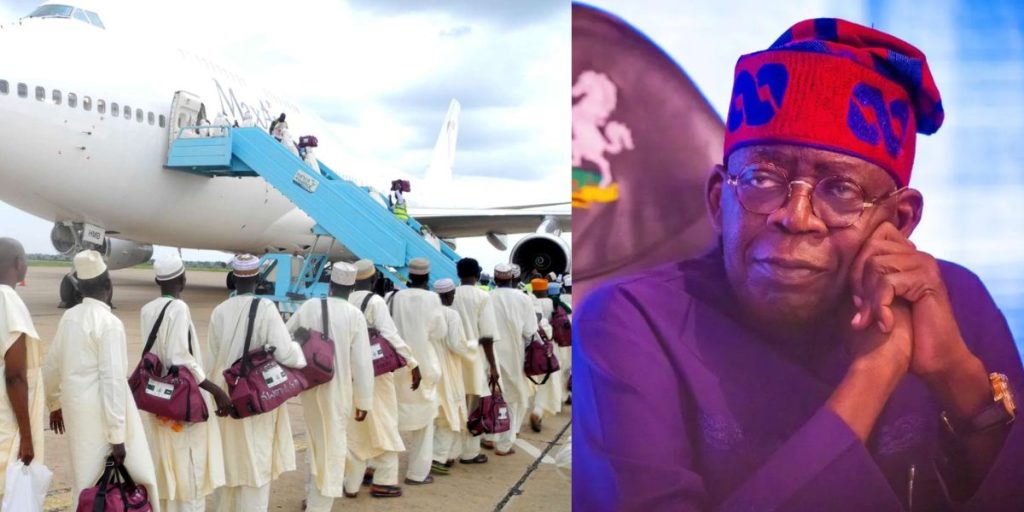Confronted with challenging decisions, President Bola Tinubu’s choice to subsidise the 2024 Hajj pilgrimage to Mecca appears to be a blend of political maneuvering and religious appeasement. For the Federal Government to be allocating a huge sum of money (some reports say up to N90 billion) to subsidise the religious pilgrimage, amid economic instability sounds like an unwise decision.
Religion is a private affair. However, in Nigeria, it appears to be more public than it should be. Last December, the National Hajj Commission of Nigeria initially set the Hajj fare at N4.8 million, based on an exchange rate of N897 per US dollar following the Tinubu administration’s decision to float the naira in June. Since then, the naira has significantly depreciated. Consequently, NAHCON had to raise the fare, burdening each pilgrim with an additional sum. Understandably, many prospective travellers expressed their dissatisfaction with this increase.
The economic rationale behind the Hajj subsidy remains questionable. The Hajj pilgrimage does not directly contribute to the Nigerian economy—it neither puts food on citizens’ tables nor reduces petrol prices. While there is no legal prohibition against subsidy payments, the critical caveat is that such funds should be channeled toward productive endeavors. Consistency in policy implementation is essential for effective modern economic management.
This policy is causing economic shocks. If the government is not subsidising petrol, it is absurd that the same administration will turn around to subsidise religious pilgrimages. Funding a religious pilgrimage at the expense of the economy is a misplaced priority.
Nigerians are already feeling the impact of economic reform policies. Before May 29, 2023, petrol was priced at N197 per liter, it has now escalated to a range of around N700 per liter. Diesel prices have also surged to approximately N1,300 per liter, posing a significant burden on businesses.
Nigeria’s national debt has surged to nearly N100 trillion. Approximately 140 million citizens grapple with multidimensional poverty. The country faces a staggering infrastructure deficit of $3 trillion, equivalent to $100 billion annually over the next three decades. The absence of reliable electricity hinders industrial growth and leaves homes in darkness. Subsidising the Hajj pilgrimage, unfortunately, will not alleviate this dire situation.
The government is grappling with an electricity subsidy, which has been estimated at N3.3 trillion by the Minister of Power, Adebayo Adelabu. Providing subsidies for the Hajj pilgrimage, or any religious pilgrimage, is economically unfeasible.
The timing of this decision is also highly inappropriate. While the general population battles with economic difficulties.
Also, bear in mind that subnational governments have their religious pilgrimage subsidy programmes running into billions of naira.
The Nigerian government should strictly adhere to the constitution, which explicitly declares Nigeria’s secularity. Section 10 of the 1999 Constitution states: “The Government of the Federation or of a State shall not adopt any religion as the State Religion.” This path aligns with the principles we should follow.
